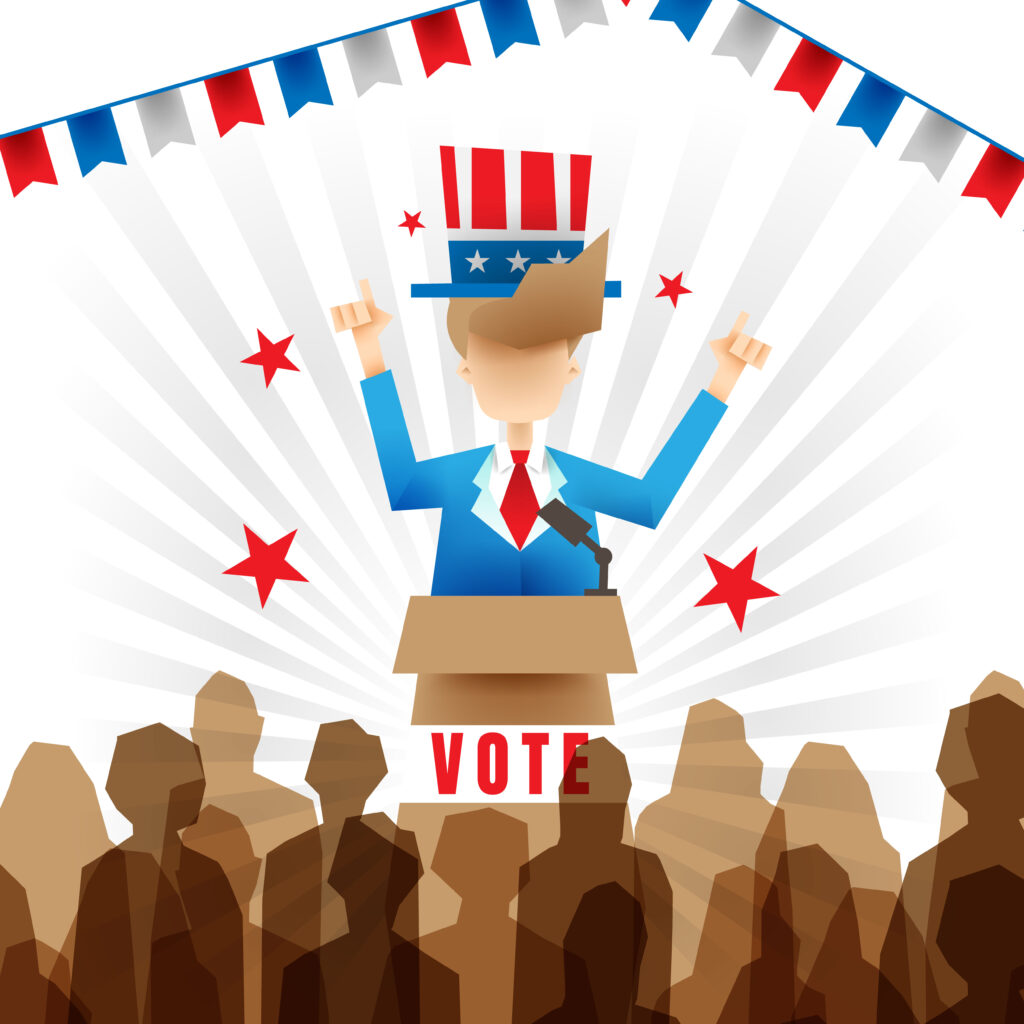What is Political Marketing?
In today’s rapidly evolving political landscape, candidates and political parties face a unique challenge: winning over the hearts and minds of voters while effectively communicating their messages in a competitive and media-saturated world. Political marketing has emerged as a vital strategy in achieving this. But what exactly is political marketing, and why is it so important?
In this comprehensive overview, we’ll delve into the concept of political marketing, its key elements, strategies, and why it plays a crucial role in modern-day elections and public decision-making.

Defining Political Marketing
Political marketing refers to the application of marketing principles and techniques to promote political candidates, parties, policies, or ideas to the public. Similar to commercial marketing, political marketing focuses on identifying the needs, preferences, and behaviors of target audiences—in this case, voters—and crafting messages that appeal to them.
Political marketing encompasses a wide range of activities, including:
- Campaign strategies aimed at reaching voters through media, advertising, and outreach.
- Positioning candidates by highlighting their policies, values, and personality traits.
- Shaping public opinion on key issues, policies, or political debates.
The goal of political marketing is not just to inform or persuade voters but to influence their attitudes, behaviors, and ultimately their voting decisions.
Key Elements of Political Marketing
Political marketing draws from several key elements that help craft effective campaigns:
- Market Research
Just like in commercial marketing, political marketing begins with thorough market research. This involves gathering data on voter demographics, opinions, and preferences to shape campaign strategies. Polls, surveys, and focus groups are some of the tools used to gather voter insights. - Targeting
Every political campaign targets specific segments of the electorate, such as undecided voters, youth, or specific interest groups. Identifying and understanding these segments allows campaigns to tailor their messaging and outreach efforts accordingly. - Message Development
A clear and compelling message is the cornerstone of any political campaign. Political marketers carefully craft messages that resonate with voters’ emotions, values, and concerns. These messages often emphasize the candidate’s strengths, such as leadership qualities or policy solutions to pressing issues. - Branding
Just as companies create brands, political candidates are “branded” as well. A candidate’s image is carefully cultivated through their public appearances, speeches, and media coverage. Political marketing ensures that this brand reflects the candidate’s values, beliefs, and political stance. - Media Management
Political marketing involves the strategic use of various media platforms to disseminate campaign messages. Traditional media, such as TV, radio, and print, are combined with digital media, including social media, websites, and email newsletters, to create a broad-reaching and cohesive communication strategy. - Persuasion and Engagement
Political marketing doesn’t just aim to reach voters; it also seeks to engage and persuade them. Persuasion involves appealing to voters’ emotions, logic, or shared values, while engagement encourages voters to take action—whether that’s casting a vote, volunteering, or donating to the campaign.
The Importance of Political Marketing in Elections
Political marketing has revolutionized the way candidates communicate with the electorate. Here are some reasons why political marketing is essential in modern politics:
1. Influencing Public Opinion
Political marketing helps shape public perception by controlling how candidates and issues are presented to the electorate. Through effective messaging and media strategies, political marketers can frame debates, highlight issues, and steer the conversation.
2. Mobilizing Voter Support
One of the main goals of political marketing is to mobilize voters. By crafting persuasive messages and strategically targeting specific voter groups, campaigns can inspire people to take action, whether it’s turning out to vote, participating in rallies, or advocating for a candidate.
3. Building Trust and Credibility
In politics, trust is everything. Political marketing helps build credibility by showcasing the candidate’s qualifications, experience, and integrity. Well-crafted messaging and transparent communication help create a trustworthy image that resonates with voters.
4. Adapting to Changing Voter Preferences
Political marketing allows campaigns to adapt to changing voter preferences. Through continuous market research and feedback, campaigns can tweak their messaging, policies, or outreach strategies to better align with the evolving concerns of the electorate.
Strategies in Political Marketing
Several strategies are employed in political marketing to ensure campaign success. These include:
- Social Media Campaigns
Social media platforms like Facebook, Twitter, Instagram, and TikTok have become indispensable tools for political marketing. Campaigns use these platforms to reach younger voters, share quick updates, and engage directly with the electorate in real-time. - Email Campaigns
Email marketing is used to keep supporters informed and engaged. Personalized email campaigns that provide updates on policy positions, events, and volunteer opportunities help maintain voter interest throughout the election cycle. - Television and Radio Advertising
Traditional media, particularly television, remains a powerful medium for reaching mass audiences. Political ads aired on TV and radio channels help candidates reach a wide demographic and create lasting impressions. - Debates and Public Appearances
Public debates and appearances are essential for building a candidate’s image. Political marketers ensure that candidates are well-prepared to present their policies and engage with voters effectively. - Grassroots Campaigning
Grassroots marketing focuses on building support from the ground up. This strategy involves door-to-door canvassing, organizing rallies, and engaging with local communities. It allows candidates to form personal connections with voters, increasing trust and loyalty.
Challenges in Political Marketing
Despite its benefits, political marketing also faces several challenges:
- Misinformation and Fake News:
The rise of misinformation, particularly on social media, poses a significant challenge to political marketing. Campaigns must work harder to counteract false narratives and maintain credibility. - Voter Cynicism:
Increasing voter skepticism toward politicians and political campaigns can make it difficult for marketers to build trust and persuade voters. - Ethical Considerations:
Political marketing often walks a fine line between persuasion and manipulation. Ethical concerns arise when campaigns use misleading or overly emotional tactics to sway voters.
Conclusion
Political marketing is a crucial component of modern elections. By using market research, message development, and media strategies, political campaigns can effectively communicate their messages, influence public opinion, and mobilize voter support. As politics continues to evolve, political marketing will remain a key tool in the arsenal of any successful campaign.
Whether through social media, traditional advertising, or grassroots efforts, political marketing shapes the way voters see candidates and issues, ultimately determining the outcome of elections. In a world where perception often equals reality, mastering the art of political marketing is more important than ever for candidates aiming to win office.




